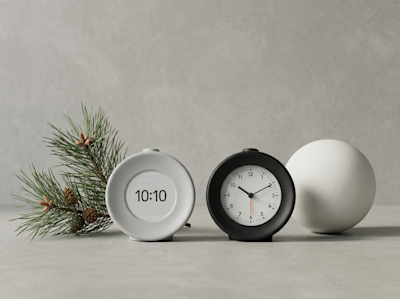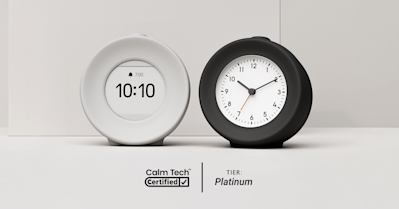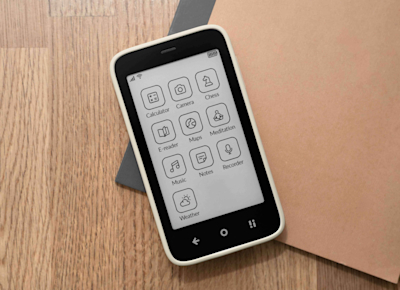
Our Digital Lives: The Power of Privacy
Privacy in the Digital Age
Recently, the subject of electronic privacy has attracted a considerable amount of attention. The global presence of digital devices and, perhaps unavoidably, the Internet, combined with our ever-expanding dependence on digital communication has caused irreparable damage to our basic definition of privacy. It’s no secret consumers are increasingly growing concerned about how their data is being aggregated, stored, and exploited for profit.
Those concerns are quite valid because, in many cases, the reasons companies amass such huge amounts of data to begin with, appear quite trivial in comparison to how extremely valuable that aggregated data actually is. Without users’ knowledge or consent, tech companies, app developers, internet service providers, cell phone carriers, online retail stores, and basically anyone else with means to collect information is able to sell highly sensitive and valuable data to the highest bidder. Large-scale data breaches[1] have also resulted in personal data ending up in the wrong hands. In fact, more Americans are afraid of identity theft than terrorism[2].
It’s no wonder that according to Pew Research Center[3], the majority of Americans feel a lack of control over their online personal information and believe it’s not possible to go about their day without being constantly tracked and monitored.
However, according to Harris Interactive and TRUSTe study[4], there also seems to be a seismic shift in the attitudes of consumers when it comes to privacy. A significant majority, 74 percent, are less likely to enable location tracking, while 84 percent of consumers are less likely to click on an online ad. Additionally, a full 89 percent will not conduct business with a company which doesn’t adequately protect their privacy online. Furthermore, 76 percent of users are likely to check a website’s or app’s privacy certification.
What does this mean for tech companies?
Like it or not, most tech companies are also in the data business. With every click we make, with every step we take, website we browse, and product we purchase, we leave a digital footprint and paint a surprisingly detailed and revealing portrait of ourselves for practically anyone to see. Millions connected devices in consumers’ lives means more concerns over personal privacy. It’s understandable that consumers now consider privacy a necessity and not a bonus feature. They are becoming very cautious, and if businesses fail to reassure and maintain consumers’ trust and confidence in the organization’s ability to safeguard their privacy, they may face backlash and suffer considerable losses[5]. According to PCI Pal global research[6], poor data security practices can result in significant consequences. A whopping 83% of consumers in the US declare they will stop supporting a business for several months immediately after a security breach. A significant 21% stated that they will never patronize that particular business again. To put it simply, consumers will abandon a business or an organization which fails to safeguard their data.
Whether it’s limiting their financial support of an organization or making the determination to avoid a business altogether for a period of time or sometimes even forever, these figures represent a potentially substantial revenue loss from which many businesses may not be able to recover. Taking a proactive approach to privacy and data protection is just smart business.
Privacy as a Business Model
Does convenience always have to come at a cost? Consumers of all ages and walks of life are becoming increasingly mindful about their growing dependence on technology. They are also cognizant that this dependence comes at the expense of their privacy. However, privacy-focused tech companies, such as Mudita, are aiming to change the status quo. Although some users may believe managing their privacy is burdensome and complicated, in addition to being filled with indecipherable terms of service, Mudita believes that privacy, similar to other security services, is a provision which has cross-application appeal and must therefore be universally applied. The company prides itself on its commitment to privacy as well as transparency. Mudita will never vacuum up personal information for profit because selling data has never been and never will be part of its business model. Mudita’s privacy-first approach was one of the main drivers in the development of our first minimalist Mudita Pure phone.
We developed our own Open Source operating system (MuditaOS) which gets digitally signed updates to make sure no one can alter it, which is a unique feature for a classic (or as some like to call them) dumb phone.
The phone has no camera and no Internet browser. Since Mudita Pure enables internet connection only when updating its firmware (FOTA) or when it’s necessary for the audio call to be carried over the LTE network (what has become a standard with most mobile operators - VoLTE) it’s nearly impossible for any third party to access your data. The only link between your data and the outside world is the Mudita Center desktop app which enables you to synchronize your data with your laptop or desktop.
The desktop app (Mudita Center) can only connect to the internet to receive secure digitally-signed updates of the operating system or enable internet tethering. Its other purpose is synchronizing your data, adding audio, using selected MuditaOS tools on your laptop/desktop. It has to be emphasized that Mudita Center is privacy-focused - it will not store nor share any contact details or any other data with Mudita nor any third parties.
Mudita Center has access to phone data only when the phone is connected to a computer with a USB cable. The desktop app can only connect to the internet to receive secure digitally-signed updates of the operating system or enable internet tethering. Its other purpose is synchronizing Mudita Pure users’ contact and calendar data, adding audio, using selected MuditaOS tools on laptop/desktop computers.
Data exported from the phone (contacts, backup, etc.) will be stored locally on the user's desktop computer in a pre-selected location. Google or iCloud login details necessary to sync contacts and calendars will not be stored by Mudita Center. Mudita as a company doesn't store any data nor has any access to it.
Mudita Kompark is a privacy-first E Ink phone
Mudita's commitment to privacy is further demonstrated in our newest minimalist phone, Mudita Kompakt, which offers a unique feature, which we like to call Offline+ Mode. This feature goes beyond standard Airplane Mode by completely disconnecting the GSM modem and microphones through hardware and software cutoffs, ensuring total privacy. With no signals or potential interruptions, it guarantees peace of mind for those looking to unplug, while still having access to core phone functionalities.
Mudita Kompakt puts privacy at your fingertips
The Future of Privacy
Privacy will continue to be a big focus point for consumers going forward. According to a WP Engine Online Privacy Study[7], nearly nine out of ten Americans (88%) believe that online privacy will be one of their biggest concerns over the next 10 years, for a variety of reasons. More than half think it’s because we are becoming increasingly dependent on internet-enabled devices (59%), another reason is because social networking sites are exposing more of our personal and private information (57%), and finally, because the government has too much access to information on its citizens (51%). In the last couple of years, big tech companies have faced considerable public criticism over their handling of users’ personal information. Consumers are taking steps to distance themselves from organizations with poor privacy policies.
According to a study released in 2019 by Edison Research and Triton Digital[8], Facebook lost an estimated 15 million users between 2017-2019 and the trend seems to continue. When Whatsapp announced, in the first week of 2021, an update to their terms of service, which would require users to agree to allow Facebook and its subsidiaries to collect WhatsApp data including users' phone numbers, contacts' phone numbers, locations, and more, the company saw a sudden drop in downloads. Downloads of the app decreased by more than 2 million[9] between January 5-12, compared to the week prior, falling to 10.6 million.
Steps like these can definitely impact the companies’ bottom line.
The logical take away from all of this is that privacy matters. Consumers are expecting privacy, and if companies fail to provide adequate safeguards, they will find someone who can.
Get ready to experience Mudita Kompakt!
This phone is ideal for those who want to reclaim their time and focus on what truly matters, whether that’s spending quality time with loved ones, engaging in creative pursuits, or simply enjoying a quiet moment of solitude without the temptation of a glowing screen.
Check out the dedicated Mudita Kompakt page: https://mudita.com/kompakt/
Mudita Kompakt is designed to help you focus on what truly matters; real-life moments, experiences, and meaningful connections. It’s about creating technology that’s always there when you need it and discreet when you don’t.
Related stories

Why a Mudita Alarm Clock is The Most Sought-After Gift Of 2025?
Give a meaningful gift this season. Discover why Mudita’s alarm clocks are the top choice for better sleep, calmer mornings & intentional living in 2025.

Mudita’s Mindful Alarm Clocks Are Calm Tech Certified™
Wake up refreshed with Bell 2 & Harmony 2. Both are Platinum Tier Calm Tech Certified™, helping you start and end each day with less stress and more presence.

How Mudita Kompakt Apps Support a Mindful and Intentional Life
Mudita Kompakt offers mindful E ink apps designed for intentional living with offline navigation, eReader, meditation, music, and mor, without distractions.
If you'd like to receive the best stories from our blog, keep up to date with our progress and get notified about our product releases and special discounts.